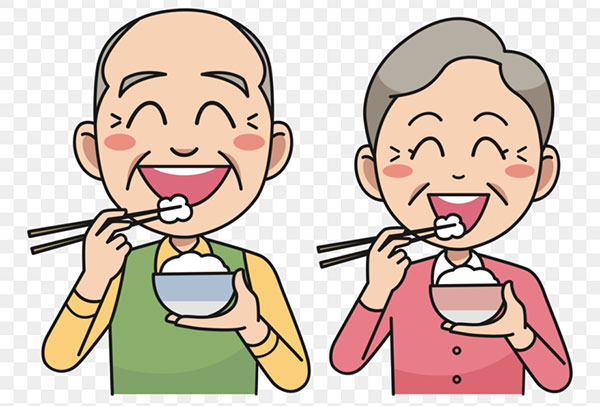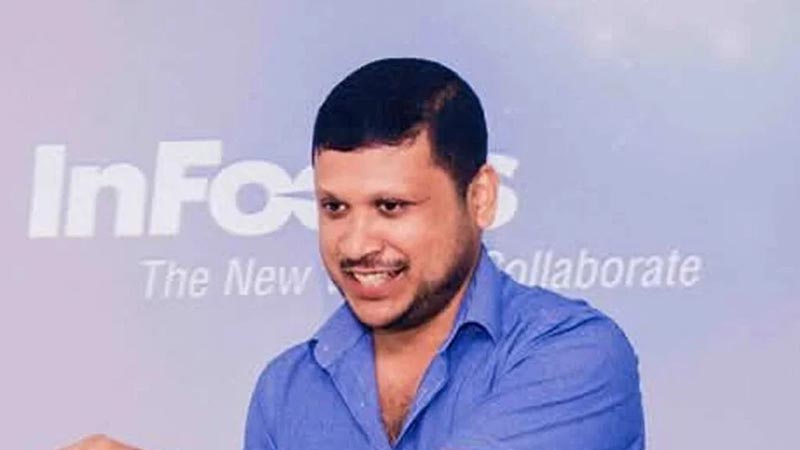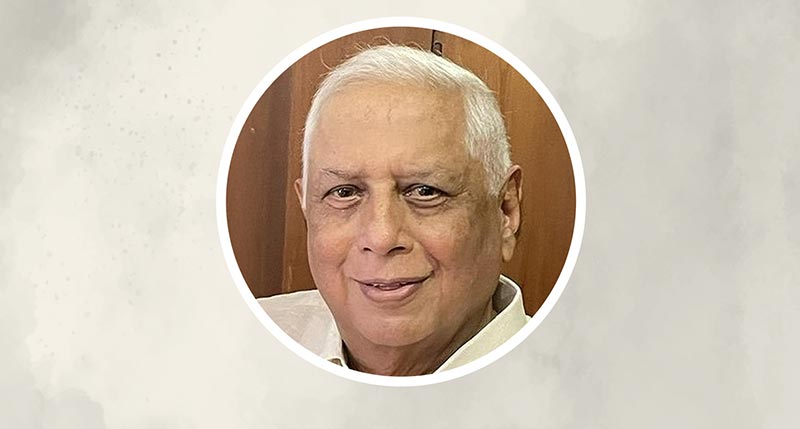Opinion
Chop-sticks and Fiddle-sticks !

By I. P. C. MENDIS
The Chinese, despite their ideology, do sometimes take Western thoughts seriously.- ” Waste not, want not”. ! A peep into the internet will reveal how the Chinese convert human waste into “Black Gold” ! As late as 2017, 85% of human waste or “night soil” as it is commonly known ,was converted into fertiliser in rural China. The miilions of livestock, including pigs and cattle, are said to contribute their mite to the final product. And, indeed, the final product by whatever name you chose to call it _ is marketed as “Organic Fertiiser”. !. Indeed,, we Sri Lankans have to thank the benevolent Chinese then (and now) for coming to our rescue and, of course, our then UNP Minister of Commerce and Trade, the late R.G. Senanayake for the bold “gate-crash” into forbidden territory, the Conmmunis world notwithstanding strong ties with the Western Imperialist set-up the UNP regime had at the time, by entering into the Rubber-Rice Agreement which kept the Sri Lankan nation fed… so to speak, for a, year and a day, till the late Prime Minister, the SWRDB sealed the shaky friendship with diplomatic ties. THe Rice Ration Book became a worthy negotiable document
Indeed, it seems an irony of fate that decades later, a succeeding Sri Lankan regime had to turn down a consignment of “organic fertiliser” from China on the score of bacterial infection in the context of our own consumption decades ago of rice grown in China porbably very much fertilised by the well-known variety of Chinese “organic fertiliser” received with great acceptance and still remembered with great gratitude !.
The Chinese are still our close friends and continue to support us economically and internationally when certain others seek to play double games. It is in the course of her own natural course of governance that they have to voice their concern over a trade issue concerning the quality of fertiliser sought to be delivered and we have to understand that. However, the fact that we are in an unenviable situation economically and otherwise is not a situation which should open us up for arm-twisting or blackmail, calling into question the integrity and verdict of our own respected outfit, the Natiional Plant Protection outfit that is in charge of such matters. The Chinese themselves need to realise that our leanings on them have already irked the Western world, India and Japan, and they are mature enough to understand the consequences of any antagonistic stand by them against Sri Lanka, They need to appreciate that the legal authority lies with such outfit and as buyers Sri Lanka calls the tune. Our legal authorities need not be and should not be subject to outside oversight or interference.Such a situation will be a very bad precedent embarrassing the standing of the local authority. The two State Ministers should never have acquiesced.and the government needs to stand firm. The visit by two State Ministers to the Chinese Mission in Sri Lanka over a dispute on a trade issue leaves a bad taste in the mouth and the stance taken by the Chinese government on the said issue, the antics reported to have been resorted to by the vessel , the samples not being tested earlier, etc., are not matters that can be condoned or made short shrift of considering the all-important fact of the sovereignty of the nation. Also, several questions remain unanswered, such as the date of the Cabinet decision, the date the LOC was opened, the procedures followed, etc. The Chinese, an all-powerful nation, should be ashamed not to realise the implications and the complications of questioning the integrity and validity of the findings of the National Plant Protection arm of the government, which has the final say. Given the background and history of the fertiliser manufacturing processes in China, there lies some chance of contamination and a second consignment would not arise for the simple reason that the farmers or the end-user is now prejudiced or biased and could not be compelled to use it at any cost. It will be throwing good money after bad for the sake of possible goodwill, with the government holding the baby and the already embattered taxpayer being whipped further and commission agents laughing all the way. Let us put our foot down for once and save our dignity!
Opinion
Prof. Harshana Sasanka Rambukwella: A Charismatic Pedagogue

Yesterday, a sumptuous rainbow manifested over Pera. I could not but think of you, my friend!
Harshana was my batchmate at Pera in 1997.
Since he was the only boy among a bevy of girls, taking the first year English course offered by the English Department, Professor Erskine called him the “thorn among roses” at the very first lecture we had with him. But Harshana Sasanka Rambukwella was never a thorn in anyone’s side, so the name did not stick.
He was a lovely human who was happy to spread goodwill among all he associated with. What I remember most distinctly about him is that he was level-headed even as a raw fresher and could argue a point with strength without showing an ounce of unnecessary aggression. Though he had a temper it was reserved for what called for anger.
My most distinct memory of him is when he and I went to the E.F.C. Ludowyk memorial lecture, when Dr. Jayantha Dhanapala spoke on Neruda, as a poet and diplomat. We were awe -struck and though shy as freshers enjoyed the academic atmosphere and the sophistication Dr. Dhanapala exuded. I am glad we did not know of Neruda’s darker side then. That would have spoilt the experience.
I also remember that we chortled when Professor Walter Perera told us not to partake of the refreshments, sotto voce because he had not thought that many people would show up. Then later, good old “Wally,” told us to go on and tuck in because there was enough to go around, with very visible relief. The two of us laughed and chuckled all the way home.
Those were good times.
I was reminded of his temper when I met him as my Professor in my Sociology of Education class, which he taught with Professor Harini Amarasuriya. It was one of the most enjoyable sessions that I was fortunate enough to attend. He would speak on Pierre Bourdieu with such magnanimous expertise helping even the most reluctant of students understand the depth of the French sociologist and philosopher’s views on education and other matters, relating these theories as they should be adopted in the teaching of English in Sri Lanka. When students in his zoom meetings were quiet, he would say with severity, ” the level of engagement is very low.”
The Charismatic Pedagogue was the title on one of his kuppi talks contributions. He was indeed a charismatic Pedagogue.
When he brought up the notion of the Brown Sahib and Thomas Macaulay, I could not help but feel nostalgic, reminded of the time we had spent as raw freshers at Pera. There was Ramila, who remained his best friend until he passed away and of course Prashani and many others. There was nothing very raw about Harshana. He was always a gentleman whether as a young man or as the gentleman I met last on 6th August 2022, when I first visited the PGIE. He would always check my availability when he called me later on and I would say “What men! Don’t stand on ceremony just call anytime!”
It was pure irony that he was one of the judges at a competition and when my entry which went without my name won, his happiness on my success was very evident when he called to congratulate me.
As a scholar, Professor Rambukwella has made many notable contributions both as the director of PGIE and also through his quite prolific writing and research which include research papers such as , Anagarika Dharmapala: the nation and its place in the world, Patriotic Science–The Corona Virus Pandemic, Nationalism, and Indigeneity, and the countless papers he co-authored with the best in the field, and his explorations on Sri Lankan English and last but not least his magnum opus: ‘The Politics and Poetics of Authenticity: A Cultural Genealogy of Sinhala Nationalism.’ This work translated by his good friend Professor Wasantha A. Liyanage, “Amare,” will influence the Sri Lankan reader for time to come. It was a timely and necessary work which will in future help countless students, scholars and readers make sense of the dialogue surrounding the notion of Sri Lankan Nationalism as manifest in politics and literature and Sri Lankan culture. He was not simply an academic he was a man of taste who lived and loved and partook of culture.
Harshana’s life, though brief made its mark on the world because he was not simply an idealist, he was an activist and a trade unionist. He led by example and was a mentor to countless people, students, writer and scholars and a miscellany of others who defy labelling. This must be a trait that he inherited from his father, who was a mild gentleman when we met him during his stint at the English Teaching Unit, but had a reputation as one of the best teachers and school masters Dharmaraja College, Kandy could boast of.
Harshana was a great scholar, a teacher par excellence and a warm kind hearted human being. He will be missed, not only by Prashani, and the two lovely girls about whom I have heard so much, but by everyone who knew him however briefly.
Rest easy my friend! You will be loved. Your life though brief is a cause for celebration not for lament!
By Ashanthi Ekanayake
Opinion
Ragging and loss of life

Recently another life of an undergraduate was lost due to barbaric ragging at the Sabaragamuwa University. This is not the first time this happened at this University and sometime back a girl committed suicide due to inhumane ragging. It is pertinent to examine some of the factors as to why this sort of inhumane ragging goes on unabated in the universities. The most important factor as to why ragging cannot be stopped falls on the university administration. Vice Chancellors are mortally scared of these violent student groups backed by their unions to take punitive action against the perpetrators of this violence. This may be because they want to paint a picture of a peaceful atmosphere in the universities to their political masters who appointed them in the first place. These vice Chancellors are also aware of instances where strong action taken against ragging by Vice Chancellors in the past resulted in their removal such as Prof. Epitawatte at Sri Jayewardenepura and Prof, Sujeewa Amarasena at the Ruhuna University. They desist from taking action with the students because of the fear that the students will organiSe protests and even resort to physical violence against them. Academic staff members also turn a blind eye even when they see instances where ragging is openly carried out by the seniors. This may be because they themselves were raggers in the past and see nothing harmful in such sordid instances of ragging. Unlike in the past, ragging today is inhuman, violating privacy and forcing hapless undergraduates into the worst forms of human torture.
Ragging is most prevalent in halls of residence where the wardens and sub wardens simply turn the other way and never try to stop this menace. Wardens are collecting points for their next promotion and do not see that it is their duty to look after the welfare of the students.
Police, too, are to be blamed for not taking action against raggers under the Anti-ragging Act even after the university produces these culprits at the police station. I can well remember the case of a ragging incident at the Peradeniya University, where the accused were handed over to the police and they wanted to record it as a case of two student groups involved in a fight. Some time ago, the Police Department stated that all forms of ragging should be reported to the CID but nothing happened under this arrangement. Similarly, recently the Attorney General gave an undertaking to the supreme court that the vice chancellors have been instructed to prevent ragging in the universities but this is just restricted to actions on paper and nothing substantial has come out. Similarly, the Attorney General’s department takes years to prosecute raggers who have been caught, produced before judges and released on bail. There is a case of some agriculture faculty students who were caught red handed in a safe house outside the University premises at Peradeniya several years ago. The Attorney General has still not filed action against these students.
This year 1250 students have been selected to the Faculty of Arts at the Peradeniya University, where there are only150 males including 30-Buddhist monks. This shows that males shy away from attending a state university and think that it is better for them to go to a private university where there is no ragging. In fact, private universities have more males than females and the underlying reason is the lack of ragging in these private universities.
The political parties who back the student unions cry hoarse for preserving free education but they do not have the slightest idea that these ragging incidents are a big threat to free education. It is up to the Government to set up effective mechanisms to curb ragging including strict instructions to the police and the legal system to deal with these cases under the anti-ragging act.
by Professor O. A. Ileperuma,
Emeritus Professor, University of Peradeniya
Opinion
Remembering Dr. Samuel Mathew: A Heart that Healed Countless Lives

It is with a deeply heavy heart that I express my sincere condolences on the passing of Dr. Samuel Mathew Kalarickal on the 20th of April 2024. Born in 1948, Dr. Samuel was not only a pioneer of interventional cardiology in India but a giant in South Asian healthcare whose influence extended far beyond national borders.
A Beacon of Excellence and Compassion
Known as the “Father of Angioplasty” in India, Dr. Samuel introduced life-saving coronary interventions when they were still rare. His leadership at Apollo Hospitals and Kokilaben Dhirubhai Ambani Hospital brought cardiac care to global standards. But beyond the accolades, it was his humility, compassion, and unwavering dedication to patients that truly set him apart.
A Lasting Impact on Sri Lanka
Dr. Samuel played a pivotal role in shaping modern cardiac care in Sri Lanka. In the 1990s and early 2000s, many Sri Lankan patients sought his expertise in India, trusting him with their lives. He treated them with care and dignity, leaving lasting impressions on families across the island.
He also trained and mentored numerous Sri Lankan cardiologists, generously sharing knowledge of advanced procedures and technologies. His efforts helped uplift cardiac care back home and empowered many of us to bring those skills to our own communities.
A Mentor Who Lit the Path
To me, Dr. Samuel was more than a mentor—he was a fatherly figure. I fondly recall our time at the 2011 Coimbatore meeting, where he urged me to form the Sri Lanka STEMI Forum. His guidance helped us create national strategies and treatment models for heart attack care—an initiative that continues to save lives today.
A Legacy That Lives On
Dr. Samuel leaves behind more than medical breakthroughs. He leaves behind a legacy of service, inspiration, and heart. His memory will live on in every life he touched, every doctor he guided, and every patient he healed.
You will be remembered always, Sir—not just for what you did, but for who you were.
May your soul find eternal peace.
– Dr Gotabhaya Ranasinghe
-

 News7 days ago
News7 days agoJapan-funded anti-corruption project launched again
-

 News7 days ago
News7 days agoSethmi Premadasa youngest Sri Lankan to perform at world-renowned Musikverein in Vienna
-

 Sports5 days ago
Sports5 days agoOTRFU Beach Tag Rugby Carnival on 24th May at Port City Colombo
-

 News4 days ago
News4 days agoRanil’s Chief Security Officer transferred to KKS
-

 Business7 days ago
Business7 days agoNational Savings Bank appoints Ajith Akmeemana,Chief Financial Officer
-

 Opinion2 days ago
Opinion2 days agoRemembering Dr. Samuel Mathew: A Heart that Healed Countless Lives
-

 Features5 days ago
Features5 days agoThe Broken Promise of the Lankan Cinema: Asoka & Swarna’s Thrilling-Melodrama – Part IV
-

 Features6 days ago
Features6 days agoTrump tariffs and their effect on world trade and economy with particular












